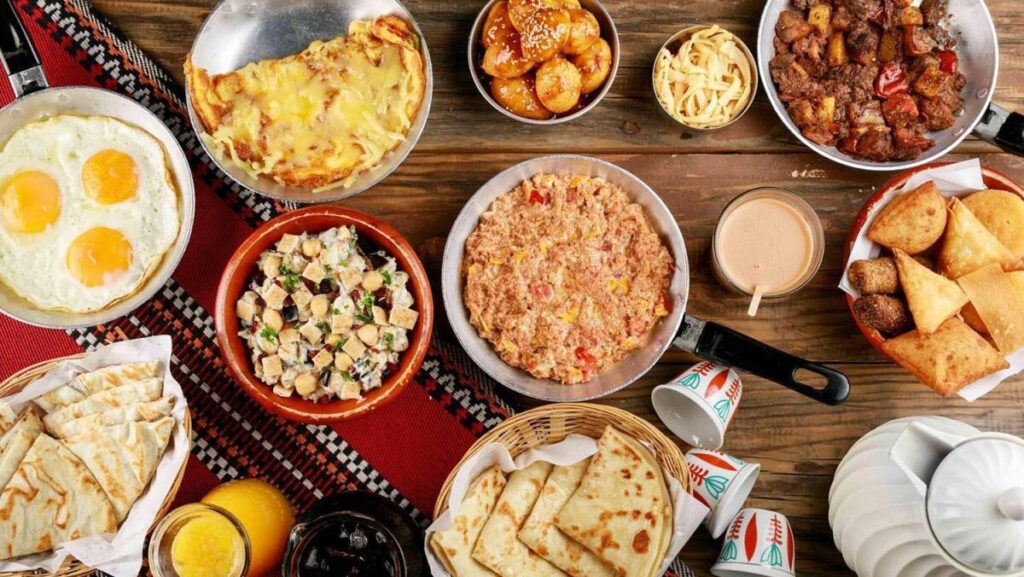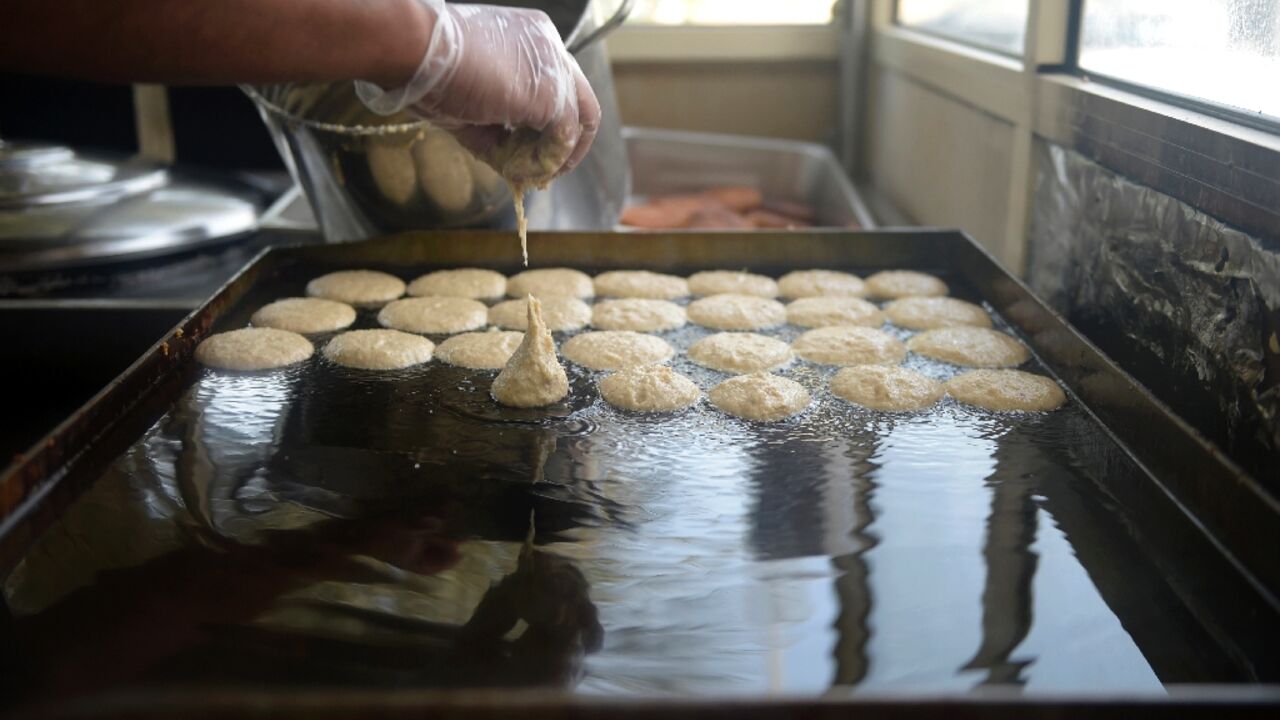The Heart of Bahraini Culture Lies on the Streets
When you walk through the streets of Manama or Muharraq, the aroma of spices, sizzling meats, and freshly baked bread greets you before the vendors themselves do. Street food in Bahrain is not just about quick meals or affordable snacks it is a reflection of a community’s soul, its resilience, and its centuries-old traditions. Street vendors across the kingdom are not only feeding locals and visitors but are also playing a crucial role in keeping alive the culinary heritage that forms a part of Bahrain’s identity.
In a rapidly modernizing society, where malls, restaurants, and international food chains dominate the landscape, street vendors act as cultural custodians. They preserve flavors that have been passed down from one generation to the next, creating an unbroken chain of tradition. Their modest carts, makeshift stalls, and small shops embody stories of family, culture, and survival.
Street Food as a Cultural Time Capsule
Every bite of Bahraini street food tells a story of migration, trade, and history. Bahrain’s position as a hub of trade routes introduced the island to spices from India, flavors from Persia, and influences from East Africa. Over centuries, these ingredients fused with native traditions, giving birth to distinctive dishes that locals proudly call their own.
Street vendors are the storytellers of this evolution. A vendor preparing machboos or thareed is not just selling food; they are sharing a cultural memory. Their recipes often come from grandparents and parents, carrying authenticity that polished restaurants sometimes fail to capture. By choosing to stay loyal to traditional methods, these vendors create edible time capsules that connect today’s generation with their ancestors.
The Everyday Heroes of Bahraini Culinary Tradition
For many vendors, selling food on the streets is more than an occupation it is a calling. They rise before dawn, kneading dough, marinating meat, or preparing spice blends that hold generations of wisdom. Their stalls often become landmarks within neighborhoods, drawing regular customers who see them not just as sellers but as extended family.
Through sheer dedication, these individuals ensure that dishes like balaleet, luqaimat, and samboosa never fade from Bahraini daily life. Each plate served is a quiet act of preservation. Without realizing it, these vendors are holding the line against the erosion of cultural identity.

Tradition Meets Modern Tastes
The challenge for many vendors is balancing tradition with the expectations of a new generation. Young Bahrainis and tourists often seek fusion, healthier options, or Instagram-worthy presentation. Street vendors adapt in subtle ways without losing their core essence.
For example, a vendor may serve traditional falafel but experiment with fillings to appeal to younger customers. Others might present their food in eco-friendly packaging or offer modern payment options while keeping the recipes unchanged. This adaptability allows them to stay relevant while keeping the traditional flavors intact.
Culinary Heritage as an Anchor in Modernization
Bahrain is a nation moving quickly toward modernization. Skyscrapers, luxurious malls, and global brands make the island a modern hub of commerce and lifestyle. Amid this transformation, there is always a danger of traditions fading into the background. Street vendors act as anchors, grounding society in its roots.
They remind Bahrainis that while progress is important, heritage is irreplaceable. A plate of halwa shared on the street or a cup of gahwa poured at a vendor’s cart becomes more than food it becomes an affirmation of identity, of belonging. For many families, visiting these vendors is a ritual, a way to connect with their cultural essence in a fast-changing world.
The Role of Women Vendors in Preservation
Among the many vendors across Bahrain, women play a particularly powerful role in sustaining the culinary heritage. From home-based kitchens to small roadside stalls, women have been instrumental in preparing and selling traditional dishes.
They bring authenticity not only through recipes but also through the stories and practices attached to them. For instance, women preparing luqaimat during Ramadan are not just selling sweet dumplings but also sharing the spirit of community and togetherness. By involving their children and younger family members in the process, they pass down skills and cultural values, ensuring that culinary traditions live on.
Street Food as a Bridge Between Generations
Generational transfer of knowledge is one of the most important roles street vendors fulfill. Younger family members often assist in preparing, cooking, or selling food. This creates a natural learning environment where recipes, techniques, and even the cultural significance of food are passed on.
It is not uncommon to see a vendor’s son or daughter helping customers, gradually learning the nuances of spice mixing or dough preparation. These moments go beyond business—they ensure that Bahraini cuisine does not become something locked away in cookbooks but something alive, practiced, and evolving.
Tourism and Culinary Heritage
For tourists, street vendors are often the first introduction to Bahraini cuisine. They provide an authentic experience that no fine-dining restaurant can replicate. A traveler enjoying tikka skewers or regag bread from a street cart is tasting Bahrain in its most genuine form.
Street vendors also serve as ambassadors of Bahraini hospitality. They engage with customers warmly, often sharing the stories behind their food. This cultural exchange builds curiosity and respect for Bahraini traditions, turning culinary experiences into unforgettable memories. By doing so, vendors help strengthen Bahrain’s global image as a country proud of its roots.
Economic Contribution of Street Vendors
While their cultural role is profound, the economic importance of street vendors cannot be overlooked. They provide affordable meals to communities, making traditional food accessible to everyone regardless of income level. Their stalls also contribute to the local economy by creating micro-business opportunities.
Many vendors operate family-run businesses, ensuring that income supports households directly. Some even grow into small restaurants over time, showing how heritage-based food can lead to entrepreneurial success. In this way, the act of preserving culinary heritage becomes intertwined with economic empowerment.
Challenges Facing Street Vendors
Despite their importance, vendors face multiple challenges. Rising food costs, competition from global fast-food chains, and stricter health regulations can make survival difficult. Additionally, modernization often pushes them out of prime locations as cities expand and gentrify.
Yet, their resilience stands out. Many continue with limited resources, driven by pride in their heritage and loyalty from their regular customers. Some collaborate with community organizations to sustain their businesses, while others innovate just enough to survive without compromising authenticity.

Technology as a Tool for Preservation
In recent years, technology has started playing a surprising role in helping street vendors preserve culinary heritage. Social media platforms allow them to reach wider audiences and share their stories. A single viral post about a traditional dish can draw long queues of curious customers.
Younger family members often manage digital presence for older vendors, giving new life to age-old recipes. By blending technology with tradition, vendors ensure that cultural food practices reach not only Bahrainis but also food enthusiasts across the globe.
Festivals and Street Food Celebrations
Bahrain’s street vendors also shine during festivals and cultural events. Ramadan, Eid, and national celebrations often see a rise in street food activity, where traditional dishes take center stage. These events create opportunities for vendors to showcase their best offerings while reinforcing cultural pride.
Food festivals in Bahrain are increasingly highlighting the work of street vendors, giving them platforms alongside well-established restaurants. This recognition helps validate their role as not just small-scale sellers but as vital preservers of culinary heritage.
A Living Legacy in Every Bite
What makes Bahraini street food special is its ability to embody history, family, and culture in every bite. Vendors are not just feeding stomachs they are feeding identities, offering people a sense of continuity and belonging.
Every time a young Bahraini enjoys a dish from a street cart, they are participating in a living legacy. Each transaction becomes a cultural act, keeping Bahraini heritage alive in a modern world.
The Future of Bahraini Street Food
The future of Bahrain’s street food scene looks promising if it continues to evolve while staying rooted in tradition. With growing interest in heritage-based tourism, government initiatives supporting small businesses, and the passion of the vendors themselves, Bahraini street food has the potential to become a global symbol of cultural pride.
The next step lies in ensuring that vendors receive enough support to overcome challenges. Whether through training programs, recognition platforms, or policy backing, preserving culinary heritage requires collective effort. After all, the preservation of culture is not only the responsibility of those cooking but also of those consuming.
Conclusion: Preserving Culture Through Food
Street vendors in Bahrain are more than small-scale entrepreneurs they are guardians of culinary memory, storytellers of heritage, and everyday heroes keeping tradition alive. As Bahrain continues its journey toward modernization, it is vital to recognize the value of these vendors not only as business owners but as cultural custodians.
Through resilience, adaptation, and unwavering commitment to authenticity, they ensure that Bahraini cuisine continues to thrive. Their stalls may be modest, but their role in shaping national identity is immense. To enjoy food from a Bahraini street vendor is to savor not just flavors but history, community, and belonging. It is a reminder that sometimes the most profound expressions of culture are found not in palaces or museums but on the vibrant streets of everyday life.
Do follow Gulf Magazine on Instagram.
Also Read – Flavors of Bahrain: Irresistible Snacks You Can’t Miss



